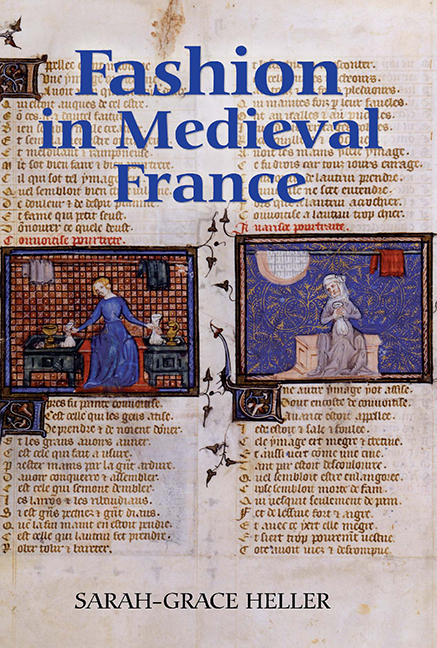Book contents
5 - The Desire for Spending Money
Published online by Cambridge University Press: 13 April 2017
Summary
It is a truth universally acknowledged, that a single man in possession of a good fortune, must be in want of a wife.
Jane Austen, Pride and Prejudice.In the opening scene of Pride and Prejudice, Mrs Bennett speculates that Mr Bingley's “large fortune” must be “four or five thousand a year.” In 1953, Marilyn Monroe, Betty Grable and Lauren Bacall played women seeking to discern “How to Marry a Millionaire.” Standards and customs change greatly between periods, but an outstanding income generally must number among a leading man's requisite outstanding traits. How much income was required to allow the medieval romance hero to cut a distinguished, fashionable figure? On another level, what does it mean when precise sums of money are used in fictional narratives? Note that it was heroes, more often than heroines, who were the prominent fashion consumers in the early centuries of the western system's existence. The majority of examples in this chapter will deal with representations of male characters’ wealth and ability to consume.
The prerequisite economy for a fashion system
Engagement in a fashion system requires personal spending resources, because it is such personal control of finances that empowers individuals to make distinctive personal choices. This chapter will examine some representations of economic anxieties in French medieval vernacular literature, looking at changes in popular monetary awareness that accompany the development of the fashion system, comparing these with historians’ analyses of the many economic changes occurring in the High Middle Ages. Changes may be observed over the “long thirteenth century” (c. 1160–1330) in the ways a hero's fortunes are described, in the amounts used for evoking fantastically valuable objects, and in the frequency of discussing prices, bargains, and incomes. Key terms from this period such as avarice, one of the most prominent sins, and aventure, associated with fortune-seeking knights, further demonstrate the complex set of desires related to personal disposable wealth and how contemporaries struggled to deal with them.
From hoards of treasure to price-consciousness
Through the early and central Middle Ages, the money supply gradually diminished in the Occident, presenting great obstacles to the development or continuance of a fashion system. Although it has been debated how brusquely trade was reduced as the Germanic tribes invaded and the Roman Empire gave way to Merovingian civilization, historians agree that coins became scarce. Trade declined, but did not cease entirely.
- Type
- Chapter
- Information
- Fashion in Medieval France , pp. 120 - 147Publisher: Boydell & BrewerPrint publication year: 2007



